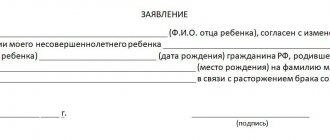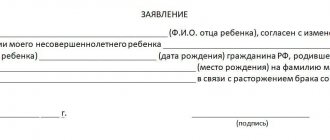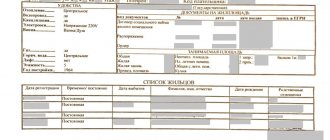Family law establishes that parents have equal rights and bear equal responsibilities in relation to their children, and are also equally responsible for their upbringing and development. Even in the event of divorce of parents, such rights do not cease, but continue to operate in full.
Including both parents jointly make decisions about their children’s holidays abroad.
In some cases, a parent, for subjective reasons, may restrict the free movement of his child around the world, which significantly complicates his departure from the Russian Federation with his second parent.
Read the article about imposing and lifting a ban on a child traveling abroad.
DEPARTURE OF THE CHILD TOGETHER WITH LEGAL REPRESENTATIVES
A minor citizen of the Russian Federation (hereinafter also a child), accompanied by at least one of his legal representatives (parents, adoptive parents, guardians, trustees), must travel abroad only with his foreign passport. In this case, consent for the child to travel abroad is not required from his other legal representatives (for example, from the second parent).
A child under 14 years of age can travel abroad without a foreign passport issued for him together with at least one of his parents, if he is included in the foreign passport of the parent traveling with him, issued before March 1, 2010. In this case, the parent’s passport must include a photograph of the child, regardless of his age, which must bear the stamp of the passport and visa service. The absence of a photograph or seal is grounds for refusing a child to cross the border. In this case, the difference in the age of the child in the picture and in life does not matter. For example, if the child is now 10 years old, and a photograph of a three-year-old was pasted into his passport when he was discharged, then there is still no need to change anything. Departure from the Russian Federation of minor children, information about which is included in the passports of their accompanying parents, issued before March 1, 2010, is carried out until the expiration of these passports.
If information about a minor citizen is included in the parents’ biometric passports, this does not give the child the right to travel outside Russia without his or her passport.
If a minor child and the parent traveling with him have different surnames, we recommend taking with you a notarized copy of the birth certificate to confirm the relationship. In practice, the absence of such confirmation served as grounds for refusing the child to cross the border. Border guards have the legal right to interview persons crossing the border and to reasonably request additional documents from them (birth certificate, marriage certificate, etc.).
A child can enter a number of CIS countries using a Russian passport: the Republic of Kazakhstan, the Republic of Belarus, the Republic of Tajikistan, the Kyrgyz Republic, the Republic of Abkhazia and the Republic of South Ossetia. Children under 14 years of age traveling together with at least one parent can travel to these CIS countries using birth certificates with confirmation of Russian citizenship (the corresponding stamp or insert in the birth certificate). Otherwise, the child may be refused to cross the Russian border and enter the country of temporary residence.
Changing of the living place
Often, after a divorce, a mother with a minor child in her arms decides to remarry. Often young women remarry with a representative of a different nationality. This assumes that the woman and her Russian child will eventually commit to leaving Russia and moving to live in another country. Whether or not the father’s permission is necessary for the departure of a minor must be clarified separately.
Diplomats of some countries name the father's permission as the first among the main documents. If the father of a minor easily gives his permission, then the only thing left to do is to issue a power of attorney.
How does the current document work?
The father's permission, which allows the minor to be taken to another state, does not have a validity period. Against this background, the father of the child always retains the opportunity to change his decision. If the second parent decides to refuse the “plaintiff,” then the mother will no longer be able to freely take the common child abroad.
Sample of father's permission to travel abroad for a child
The notary office employee involved in resolving this issue undertakes to warn both parties about their rights and obligations. Unfortunately, “peace” after a divorce is an extremely rare phenomenon. This is because most often the decision to divorce is made by only one party. In this regard, many mothers who managed to take their children abroad have problems.
Thus, there are often cases when a mother and child become accustomed to new realities, but the woman is soon forced to return to Russia. The reason for the call is simple – to resolve a controversial issue.
In such a situation, women are recommended to petition for deprivation of the father's parental rights. The likelihood of winning such a delicate case is high. To do this, a woman who has decided to take a minor out of Russia undertakes to provide the court with all evidence that the father did not act in the interests of the child. There is one more interesting point.
Sample petition for deprivation of parental rights
Thus, today the requirements of the powers located in the Schengen area have become much stricter. According to the new requirements, it is now very difficult to ignore the opinion of the father of a minor taken abroad.
In order to have this opportunity, you need to achieve the “correct” court decision. That is, the court must make a decision regarding the complete transfer of custody rights. The decision that a minor can leave Russia without hindrance has no force.
Unfortunately, many European consulates consistently refuse women who do not have the appropriate document in hand. If a person does not have full rights, then he must be given permission to travel abroad as a minor. Before the tightening came into force, the issue was resolved in different ways. The courts made decisions in the interests of both the mother and father of the minor.
Russian legislation allows you to challenge any ban. If the court decision is made in favor of the plaintiff, then the minor can be taken to any country until he reaches eighteen years of age.
Departure of a child to the USA
In 2021, many Russian women chose to become US citizens. The issue of obtaining citizenship of this country is very difficult in itself. Sometimes it is complicated by the emergence of new pitfalls. In this regard, many are interested in the question of whether the father’s permission is needed to take a minor for an interview at the US consular office.
American diplomats can only be matched in toughness by German diplomats. There have been cases when Russians were denied an American tourist visa for no apparent reason. Becoming a US immigrant visa holder is even more difficult. Women who have children from a Russian husband and remarry Americans experience particular difficulty.
Some Russian women even resort to “military tricks.” They prefer to hide the existence of the child, and once in the United States, by hook or by crook they try to “summon” the minor to come to them. Such an adventure almost never ends in success. Therefore, the question regarding the father’s permission is fundamental.
A sample permit for a child to travel to the USA with one of the parents for tourism purposes is available in Russian, and here is a translation of the consent into English.
So, if the consul has questions regarding the existence of objections from the father of a minor, the issue will be resolved as follows:
- First, the consul sends a request to the authority that issued the child’s passport.
- This authority can easily “revoke” a minor’s passport (due to the peculiarities of local laws).
- If the higher authority does not cancel the minor's passport, the immigrant visa will be issued.
To avoid trouble, it is necessary to clarify all controversial issues with the consul in person.
It would be best to contact the diplomat in writing. Consulate staff respond not only quickly, but also very thoroughly. Most often, the diplomat's answer contains a hint as to how best to proceed in a given situation. After the immigrant visa is issued, the mother and child can safely leave for the United States.
If the consul has doubts, the visa will be refused. The “piquant thing” of the refusal is that it is not always possible to challenge the decision of an American diplomat. In some cases, the immigration issue was resolved over several years. This information is relevant only for Russians. In Ukraine and Belarus, decisions are made in accordance with local realities.
DEPARTURE OF A CHILD UNACCOMPANIED BY A LEGAL REPRESENTATIVE
A minor Russian citizen leaving the Russian Federation unaccompanied by legal representatives (parents, adoptive parents, guardians, trustees) must have with him, in addition to a foreign passport, a notarized consent of one of the legal representatives for his departure abroad, indicating the period of departure and a complete list of states that he intends to visit. The names of countries must be designated correctly in accordance with the All-Russian Classifier of Countries of the World.
It should be borne in mind that if the notarized consent is not properly executed, the child will not be allowed to cross the border.
Parental consent, which is issued by a notary of a foreign state, must contain a translation into Russian and be certified by a consular office abroad of the Russian Ministry of Foreign Affairs or by affixing an apostille provided for by the Hague Convention.
At the same time, in order to return a minor Russian citizen to his homeland, a notarized consent is not required.
It is necessary to take into account that embassies of foreign countries, in the case of issuing a visa for a child traveling without parents, may require notarized consent from both parents. In this case, the originals of such consent remain at the embassy. Therefore, we recommend that when registering for a minor to travel abroad without the accompaniment of his parents, he immediately prepares the parents’ consent for his departure in several copies (depending on the number of visas received and the need to present the original consent at passport control).
If the consent of the second parent with whom contact has been lost is required to generate a package of necessary documents, a certificate from the police is provided to the visa center stating that it is impossible to establish the whereabouts of the second parent. If the second parent has died, instead of his consent, a notarized translation of the death certificate into the language of the country of temporary residence is accepted.
When preparing documents for a child’s trip abroad, it is necessary to take into account that the rules for entry into some countries may change every year, so it is best to familiarize yourself with them in advance at the consulates, embassies, visa centers of the countries of planned temporary stay or on the websites of these organizations.
Challenging
According to Russian law, it is possible to challenge the ban on a child’s departure. The court does not have a basis, which is presented in regulations and allows the removal of restrictions on travel.
When going to court, it is extremely important to have compelling reasons why the ban on the child’s departure needs to be lifted. Therefore, you need to prepare to correctly present the demands in the claim. All decisions are made by the court in such a way that they satisfy the interests and needs of the child.
Find out more information about preparing documents for a child to travel abroad here.
Positive factors for approval of the application in 2021 may be:
- The desire of a minor child to travel abroad.
- Evidence demonstrating the benefits of the planned trip for the child.
- Selecting a travel period indicating the exact time of stay in another country. It is not advisable to go abroad during your studies. This serves as another reason for refusing to lift the ban.
- A trip to another country is due to obtaining education in it, participation in a competition, the need for treatment of a child and other significant reasons.
A positive result will be affected by:
- Testimony from relatives regarding the need for the child to travel abroad.
- The child's sincere desire to go to another state.
- Paid travel packages.
- Documents confirming the serious health condition of the child and the need for treatment abroad.
- Reasons for studying in another state.
- Confirmation of the significance of the competition in which the child will take part.
- A detailed description of the trip down to the destination and route.
DEPARTURE OF A CHILD UNACCOMPANIED BY AN ADULT
If a minor citizen of the Russian Federation travels abroad without being accompanied by adults at all, then he must have with him, in addition to his passport and notarized consent, also a power of attorney or other document for a representative of the airline operating the flight on which the child is flying.
The possibility of transporting a child unaccompanied by an adult passenger under the supervision of the carrier is provided for in the Federal Aviation Rules “General Rules for Air Transportation of Passengers, Baggage, Cargo and Requirements for Services for Passengers, Shippers, Consignees”, approved by Order of the Ministry of Transport of the Russian Federation dated June 28, 2007 No. 82 (paragraphs 103 -105), but only if such transportation is provided for by the air carrier’s rules. Specific information should be checked on the official website of the airline.
At the same time, when unaccompanied minors travel abroad, the rules of entry, exit and transit through each specific country included in the child’s itinerary should be taken into account.
Who has the right to write
In 2021, several persons have the right to impose a ban on the departure of a minor:
- Parent.
- Legal representative who can act as:
- guardian;
- trustee;
- adoptive parent.
- An official representing the guardianship and trusteeship authority.
Adults raising children in single-parent families are advised to first check whether the other parent has submitted a similar application.
This will reduce the time of legal preparation for the trip and eliminate acceptable risks.
DISAGREEMENT OF THE LEGAL REPRESENTATIVE TO THE CHILD'S GOING ABROAD
Each parent has the legal right to submit to the Federal Migration Service or the Border Service of the FSB of the Russian Federation a written statement of their disagreement with the child’s departure abroad. The rules for filing such are regulated by Decree of the Government of the Russian Federation No. 273 of May 12, 2003.
Each parent has the right to refuse to give notarized consent to the child’s departure abroad of the Russian Federation.
Such decisions that prevent a child from traveling abroad should be challenged in court.
The issue can also be resolved pre-trial if a notarized consent to their departure abroad is obtained from the “disagreeing” parent, who previously filed a statement of disagreement with the departure of their children from the Russian Federation.
Ban notice
The Migration Service, as well as the applicant, is not obliged to notify parents about the imposition of a ban on the departure of their minor child. The law does not require this. But you can check with the migration department at your place of residence, the FSB or the customs service.
It is possible to visit or send a request electronically. The processing time for the application is up to 30 days. You must present a passport and documents proving your relationship with the child.
If all requirements are met, the migration service will provide the requested information without any problems.
CONCLUSIONS:
- In case of departure of a child accompanied by both parents: the following documents are required:
- biometric international passports of both parents and the child, or old-style international passports of both parents, one of which includes the child;
- The following documents are required:
the child’s birth certificate or a notarized copy of this certificate, if the minor is under 14 years old, and he is traveling on his own passport and has a different surname from his parents.
- In the case of a child traveling accompanied by one of the parents (whether the parents are married or not does not matter):
The following documents are required:
- biometric international passports of the parent and child, or the old-style international passport of the parent in which the child is registered;
notarized consent of the second parent to travel abroad from our country in the event that he previously received a statement of disagreement to the departure of his children from the Russian Federation;
- The following documents are required:
the child’s birth certificate or a notarized copy of this certificate, if the minor is under 14 years old, and he is traveling on his own passport and has a different surname from his parents.
- In the case of a child traveling unaccompanied by parents (with relatives, friends of parents, as part of a group, etc.):
The following documents are required:
- biometric passport of the child;
notarized consent for the child of one of the parents to travel abroad, if there has been no statement of disagreement from the other;
- a notarized power of attorney for the person accompanying the child.
- If a child travels unaccompanied by adults:
The following documents are required:
- biometric passport of the child;
notarized consent for the child of one of the parents to travel abroad, if there has been no statement of disagreement from the other;
- a notarized power of attorney for the airline representative, under whose supervision the child makes the flight.
WHAT ELSE PARENTS NEED TO KNOW
If travel ban you do not need .
If there is a travel ban, it is not enough to formalize consent - you need to lift the ban.
to check information about the travel ban at the Ministry of Internal Affairs.
If a child is traveling alone and there is no travel ban, consent from one parent .
The travel ban applies only to other countries; it does not apply to travel within Russia .
Elena Myagkova
ATTENTION:
Even more materials from ATOR are in our channel on Yandex.Zen.
You can read the news by subscribing to the Instagram account of the Association of Tour Operators, to the ATOR channel on Telegram, or to updates on our Facebook page and the ATOR VKontakte community.
You will find free online courses, webinars and electronic catalogs of tour operators at the ATOR Academy.
New: subscribe to the official ATOR channel on YouTube and join the official ATOR group on Odnoklassniki.
come back
REGULATIONS YOU NEED TO KNOW
The travel of minor Russian citizens abroad and the preparation of documents for them are regulated by:
- Federal Law of August 15, 1996 No. 114-FZ “On the procedure for entry into and exit from the Russian Federation”;
- Decree of the Government of the Russian Federation of January 19, 2010 No. 13 “On the procedure for using forms of a passport of a citizen of the Russian Federation, a diplomatic passport of a citizen of the Russian Federation and a service passport of a citizen of the Russian Federation, identifying the identity of a citizen of the Russian Federation outside the territory of the Russian Federation, containing electronic media”;
- Decree of the Government of the Russian Federation of May 12, 2003 No. 273 “On approval of the rules for filing an application for disagreement with the departure from the Russian Federation of a minor citizen of the Russian Federation”;
- Order of the Ministry of Internal Affairs of the Russian Federation of February 12, 2009 No. 128 “On amendments to the order of the Ministry of Internal Affairs of May 26, 1997 No. 310”;
- Order of the Ministry of Internal Affairs of the Russian Federation dated May 26, 1997 No. 310 “On approval of instructions on the procedure for registration and issuance of passports to citizens of the Russian Federation for leaving the Russian Federation and entering the Russian Federation”;
- Decree of the President of the Russian Federation of November 3, 2006 No. 1226 “On introducing amendments to the regulations on the procedure for considering issues of citizenship of the Russian Federation, approved by Decree of the President of the Russian Federation of November 14, 2002 No. 1325”;
- Federal Aviation Rules “General rules for air transportation of passengers, baggage, cargo and requirements for servicing passengers, shippers, consignees”, approved by Order of the Ministry of Transport of the Russian Federation dated June 28, 2007 No. 82;
- Letter of the Federal Tax Service of Russia “On the consent of legal representatives to the departure from the Russian Federation of a minor citizen of the Russian Federation” No. 329/06-01 TV dated February 27, 2010;
- Letter of the Department for Legal Assistance and Interaction with the Judicial System of the Ministry of Justice of the Russian Federation dated October 20, 2009 No. 16-1598;
- Letter of the Border Service of the FSB of the Russian Federation dated June 27, 2007 No. 21/1/7/3;
- State standard of the Russian Federation dated December 14, 2001 No. 529-st;
Contact telephone number for obtaining reference information on the procedure for leaving the Russian Federation and entering the Russian Federation for Russian and foreign citizens from 09.00 to 18.00 on weekdays (this information is posted on the website of the Border Service of the FSB of Russia: https://ps.fsb.ru/contact .htm)
WE WISH YOU A PLEASANT TRIP!
How the restriction is applied
The introduction of restrictions is allowed at any time without giving reasons. After the ban is introduced, the party requesting it is not required to report its actions.
A similar situation applies to government bodies that have activated the corresponding appeal: they are not obliged to inform the party in respect of whom such conditions have been introduced.
The 2021 application must be submitted personally by the parent, guardian or trustee.
For registration, it is necessary to prepare a package of documents and submit it for consideration to one of the following institutions:
- Department of the Ministry of Internal Affairs at the place of permanent or temporary registration.
- To the embassy or consulate of the Russian Federation, if the applicant is located outside the Russian Federation.
If restrictions are required for a child who is not a citizen of the Russian Federation, the application will not be accepted. Domestic legislation does not provide for bans on the departure of non-resident children.
With dual citizenship, one of which is Russian, the legislation considers the child as a citizen of the Russian Federation, which makes it possible to apply current laws and regulations in relation to him.
Deadlines
The time required for the application to take effect depends on where it was submitted. When contacting the migration or consular department, activation will occur within one to two weeks.
The validity of the submitted application provides for the period until the child reaches the age of majority (by default). A different period may be used, but this must be indicated when drawing up the document.
What to expect in the near future
The Ministry of Internal Affairs proposes to introduce a number of amendments that will protect a child from situations when one of the parents does not give permission to leave for the purpose of blackmail. Often this happens out of revenge or with a demand to refuse alimony.
There are enough such appeals from single mothers in legal forums. For example, what to do if your ex-husband does not give permission to go on vacation. There are two ways out of this situation:
- Find a common language with the other parent.
- Go to court, explain the situation and, perhaps, you will be able to achieve the desired result. However, this does not always happen in the case of vacations. Most often, the judge recommends making peace or going on vacation to Russian resorts.
If such changes are made, then in addition to information about yourself and the child, the application will have to indicate the intentions with which it is being submitted. It is also planned to establish a requirement to indicate the actual address of the second parent. During the processing of the application, he will be sent a mail notification informing him of the possible application of restrictions.








